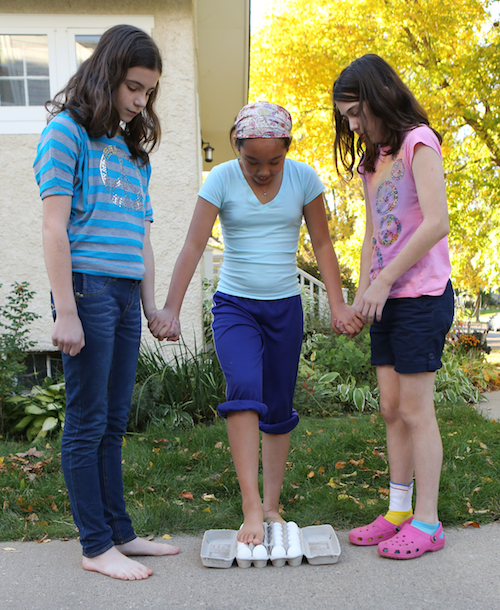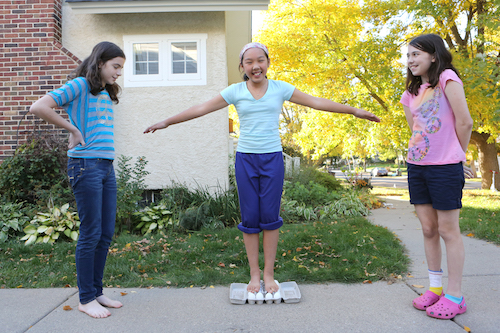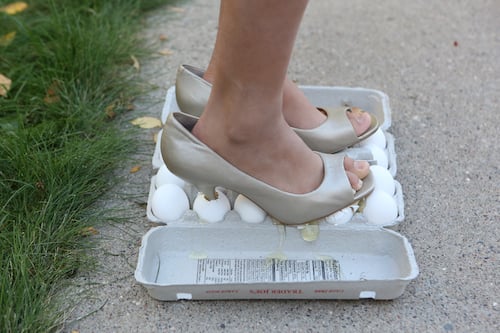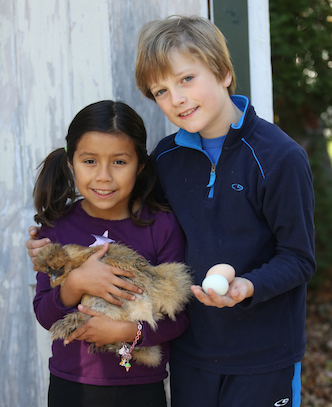Eggs are tougher than you think, thanks to their arched architecture. Standing on a carton of raw eggs is an exciting way for kids to test the strength of eggshells.
Here's What You'll Need
- 1-2 cartons of raw eggs (keep eggs in the carton)
- a flat surface, like a wood floor or driveway
How to Do the Experiment
Step 1: Check the eggs for cracks and turn them so that they’re all facing the same direction, with either the pointy side up or the round side up. Set them on a flat surface.
Step 2: Have your child take off their shoes and socks.

Step 3: Hold your child’s hand and have them step carefully onto the eggs with a flat foot. If the pressure is even, the eggs shouldn’t break.

Step 4: Let go of their hand.

Step 5 (optional): Try the same thing wearing soccer cleats, or some old spike-heeled shoes. Now what happens?
The Science Behind the Fun

Chicken egg shells have to be fragile enough that chicks can peck their way out, but strong enough for hens to sit on. If you pick an egg up and squeeze it as hard as you can with your bare hands, it probably won’t break, thanks to its arched shape.
If you look around, you’ll see that humans use arches too - in their architecture, to build strong bridges and buildings.
When you stand barefoot on a carton of eggs, your foot is big enough to spread the pressure of your weight around to all of the eggs, and their arched structure keeps them from breaking. But, if you try the same thing wearing cleats or heels, all the pressure pushes down on the eggs in a much smaller area, and the egg shells break.
You can find more experiments like this one at kitchenpantryscientist.com, and in my books Kitchen Science Lab for Kids (Quarry Books) and Outdoor Science Lab for Kids (Quarry Books).
© Quarry Books, 2016/Kitchen Science Lab for Kids
Featured Photos Credit: © Quarry Books

